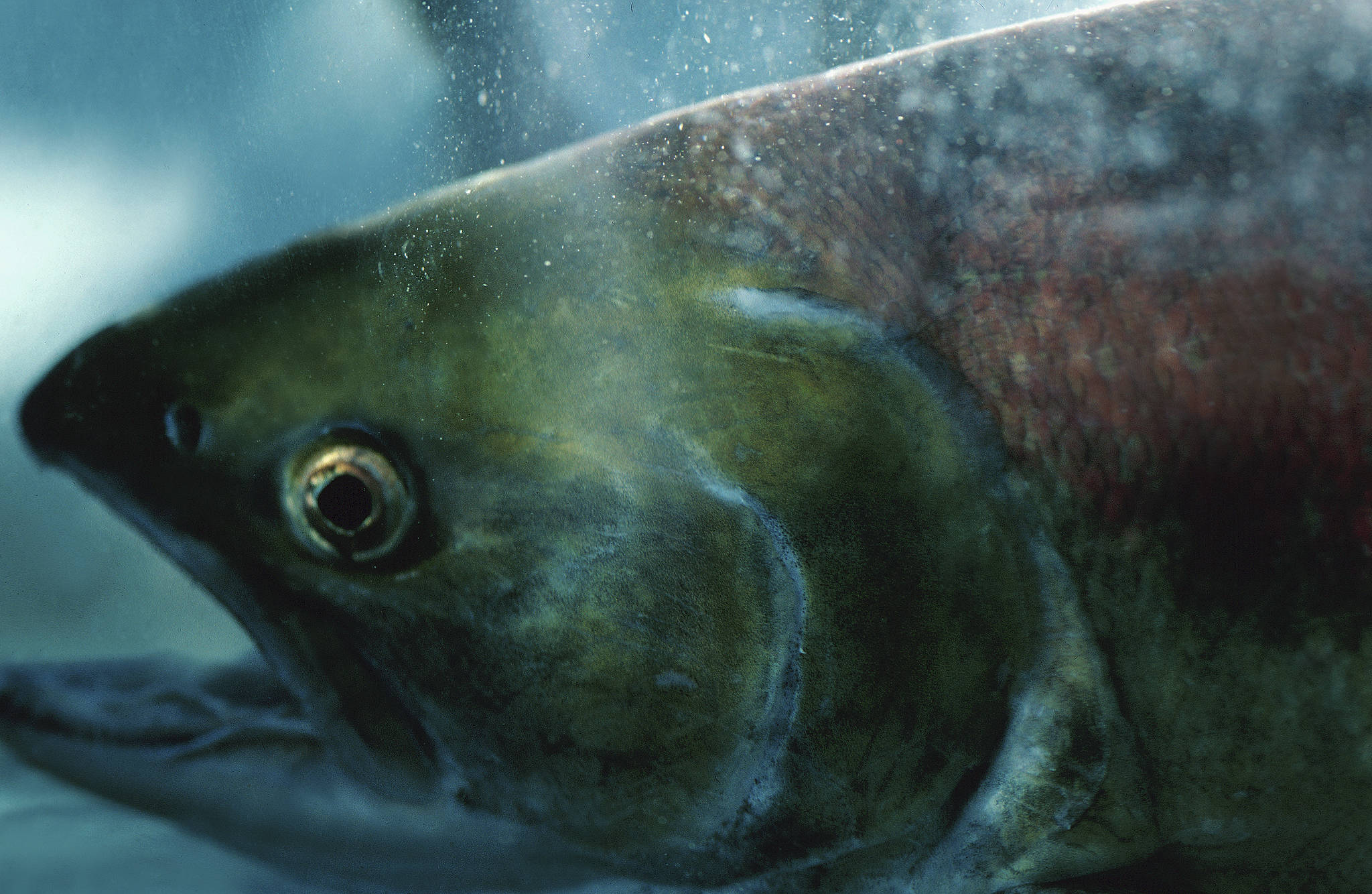A group of the state’s staunchest salmon defenders is proposing a ballot initiative that seeks to strengthen legal protections for Alaska’s fish-bearing streams and rivers.
On Tuesday, Mike Wood, Brian Kraft and Gayla Hoseth delivered a petition with more than 350 names to the Alaska Division of Elections office in Anchorage. The text of their petition covers eight pages of legalistic language in tiny type.
“We are looking to give Alaska Department of Fish and Game the adequate tools to protect fisheries and fish habitat when it comes to large-scale development projects in the state of Alaska,” said Kraft by phone. “Right now, they don’t have those tools.”
For more than a decade, Kraft – owner of two Bristol Bay sportfishing lodges – has been one of the most vocal opponents of Pebble Mine.
He said ADF&G can’t defend Alaska’s multibillion-dollar fishing industry from development that threatens it.
“They are in a consulting position. The Department of Natural Resources is in the lead position, and Fish and Game could say look, this project is absolutely crazy … and DNR could say thank you very much for your comments, then go ahead and permit it,” Kraft said.
Kraft and Hoseth (the latter is an employee of Bristol Bay Native Association) have fought Pebble for years. For this ballot initiative, they’ve joined other pro-fish organizations under the umbrella name Stand for Salmon.
Mike Wood, one of the initiative’s sponsors, is president of the Susitna River Coalition, which has opposed construction of the Susitna-Watana Hydroelectric Project.
Wood said there’s a natural alliance. Instead of having individual groups oppose individual projects, they can get together and close regulatory gaps that are causing legal battles.
“In a way, instead of whack-a-mole, it’s like let’s do something to help the state save money and clarify how this can work,” Wood said.
Under the Alaska Constitution, Lt. Gov. Byron Mallott has 60 days to certify the initiative or reject it. Given the complexity of this push, Kraft said he expects the state’s legal experts will need the entire 60 days.
If approved, supporters will then need to garner thousands of signatures across the state.
Rep. Louise Stutes, R-Kodiak, has sponsored House Bill 199, a measure similar to the new ballot initiative.
“It’s going to come one way or another,” she predicted on Wednesday.
In 2014, Alaskans voted by a wide margin to support an anti-Pebble and pro-salmon ballot initiative.
Stutes believes there is similar support for the new ballot initiative. If that’s the case, it has implications for her own bill.
Article XI, Section 4 of the Alaska Constitution states that “if before the election, substantially the same measure has been enacted, the petition is void.”
If the ballot initiative gets the public’s support, “it is going to enhance the working ability of people in this building,” she said from the Capitol.
Pro-mining organizations affected by the initiative might be willing to accept a watered-down version of Stutes’ bill rather than rejecting it outright, because of the pressure applied by the looming initiative.
If approved by the lieutenant governor, and if initiative backers succeed in putting the measure on the 2018 ballot, Kraft predicts Alaskans will see a big fight.
“I’m sure we’ll hit lots of opposition, and the opposition has got very, very deep pockets,” he said.
• Contact reporter James Brooks at james.k.brooks@juneauempire.com or call 419-7732.

